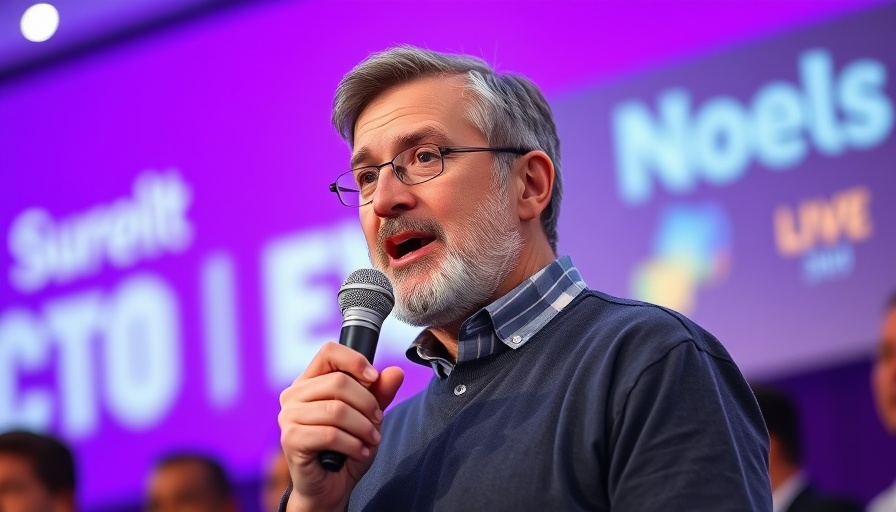
Mark Cuban's Warning: A Trust Crisis in AI?
Billionaire investor Mark Cuban has recently voiced his concerns regarding OpenAI's controversial decision to allow erotica in ChatGPT for verified adults. Starting in December, CEO Sam Altman announced that users would be able to engage in adult conversations, a move Cuban warns could lead to a devastating trust crisis among parents and educational institutions. Cuban emphasizes that parents will likely abandon ChatGPT at the first sign that their children could potentially access inappropriate content, regardless of the implemented age-verification system.
Why Could This Backfire?
Cuban's objections stem from a critical perspective about the implications of minors conversing with AI. He argues that the emotional bonds formed between children and AI can lead to negative outcomes. “This is not about porn,” Cuban clarifies, expressing concern that children may develop emotional relationships with ChatGPT without parental oversight, potentially leading to unhealthy emotional developments.
Sam Altman has countered that the move to include adult themes stems from a desire for ChatGPT to cater to adult users, making interactions more enjoyable compared to a platform perceived as overly restrictive. However, this decision raises significant ethical questions. With studies revealing that many teenagers currently engage with AI companions, the risks involved cannot be overlooked.
The Psychological Impact of AI Companions
Research indicates that emotional attachments to AI can manifest in various ways. Reports show that nearly half of all teenagers use AI platforms regularly, with many opting for AI interactions over human conversations for serious matters. This trend prompts concern: how can parents monitor these interactions when content becomes less regulated and more adult-oriented?
Recent discussions have highlighted a pattern of users developing emotional dependencies on AI, raising alarm bells among child psychologists and advocates for mental health. When emotional investments go unmonitored, the potential for adverse effects increases, especially for vulnerable youths who may engage with AI under normalized conditions.
The Financial Motivation Behind Content Changes
Amidst declining engagement and subscription numbers for AI services, OpenAI's move could be seen as an attempt to rejuvenate interest and activity in its products. According to analysts, growth has stalled for the once-thriving ChatGPT platform, prompting a relaxation of restrictions in search of new subscribers. This shift poses a stark contrast between immediate financial needs and long-term consumer trust.
Analyst observations note that if parents or educational institutions decide the risks of content exposure are too great, they are likely to seek alternative platforms. The implications of this pivot may lead to substantial consequences for user retention and growth.
Regulations and Safeguards: What’s Next?
OpenAI has emphasized the development of new moderation tools to protect users, especially concerning mental well-being. However, the efficacy of these tools will be scrutinized, particularly in light of their potential shortcomings. Cuban's worries are compounded by recent cases in the media highlighting the fine line OpenAI walks in balancing user engagement with user safety.
Beyond age verification, OpenAI has yet to unveil the specific mechanisms it will implement to ensure content safety. The ongoing conversation raises vital questions about ethical responsibilities in AI development.
Looking Ahead: The Role of Parents and Educators
As OpenAI moves forward with this new strategy, the responsibility may increasingly shift to parents and educators to scrutinize AI use among children and teenagers. It is paramount for adult users to remain informed about the platforms their young ones engage with, alongside implementing dialogue that elucidates the nuances of AI interactions.
Ultimately, as advances in AI technology continue to evolve rapidly, sustaining a safe environment for all users must be prioritized. Continuous communication and proactive measures will be critical in managing the implications of AI content flexibility.
Join the Conversation! How Do You Feel About This?
As the discussions unfold about the inclusion of adult content in AI, how do you feel about its impact on younger audiences? Should there be stricter guidelines for AI interactions to safeguard minors? Share your thoughts and engage in the conversation around this pressing issue.
 Add Row
Add Row  Add
Add 




Write A Comment